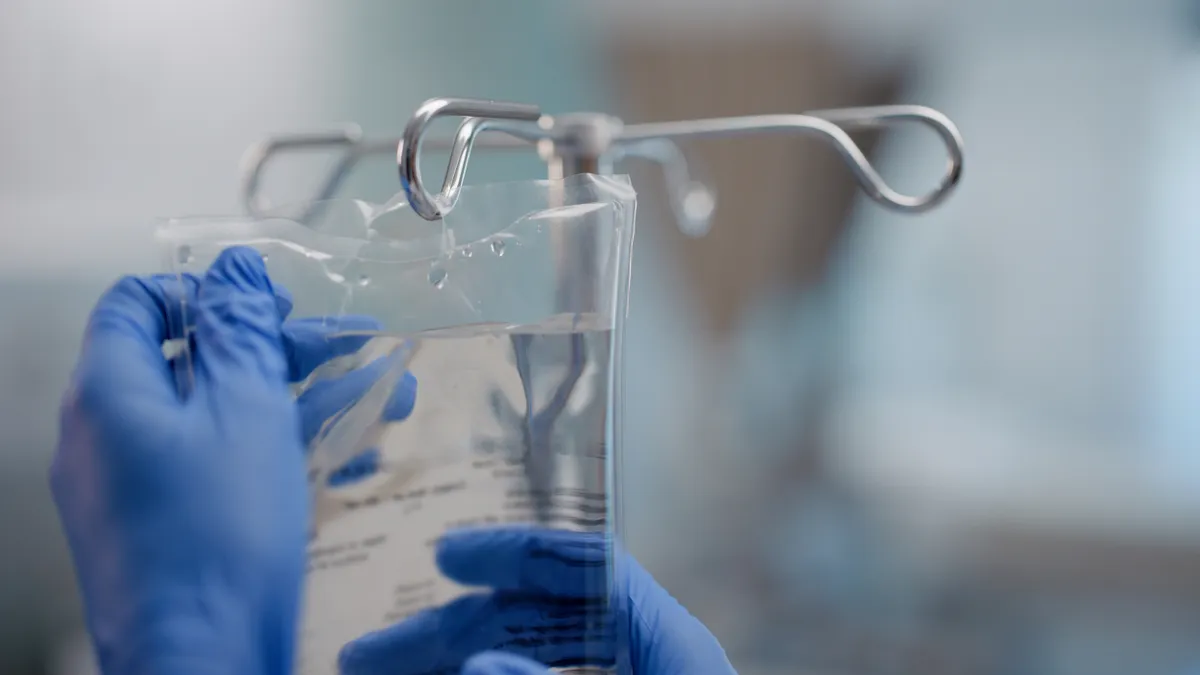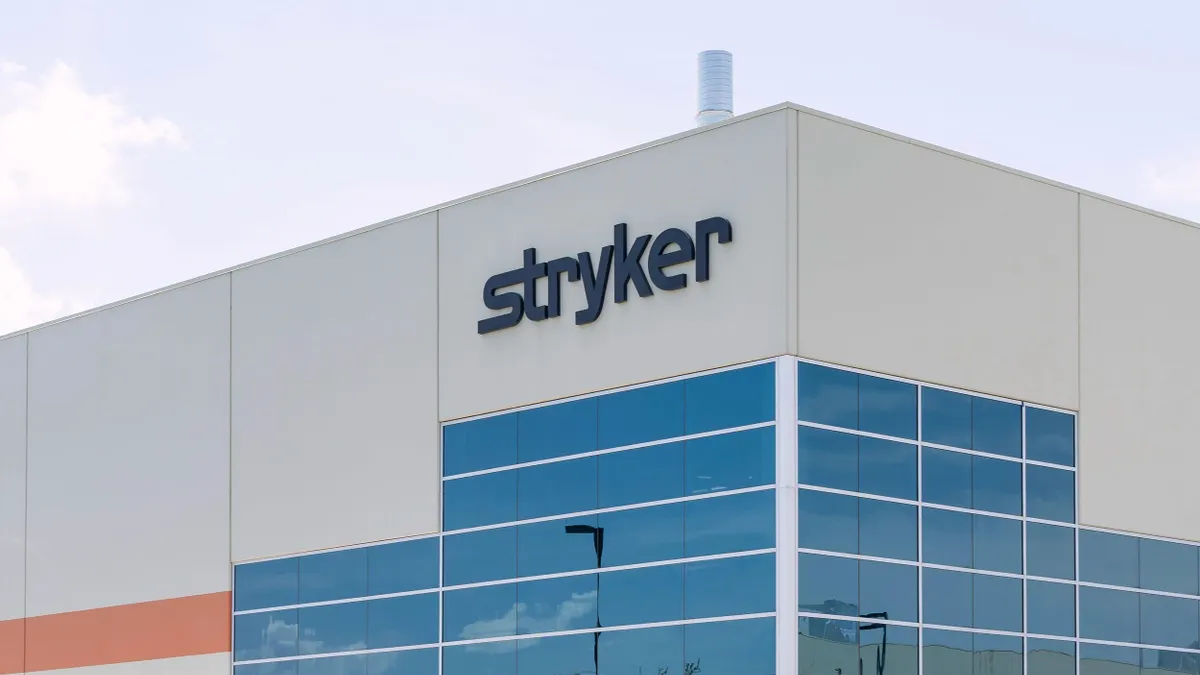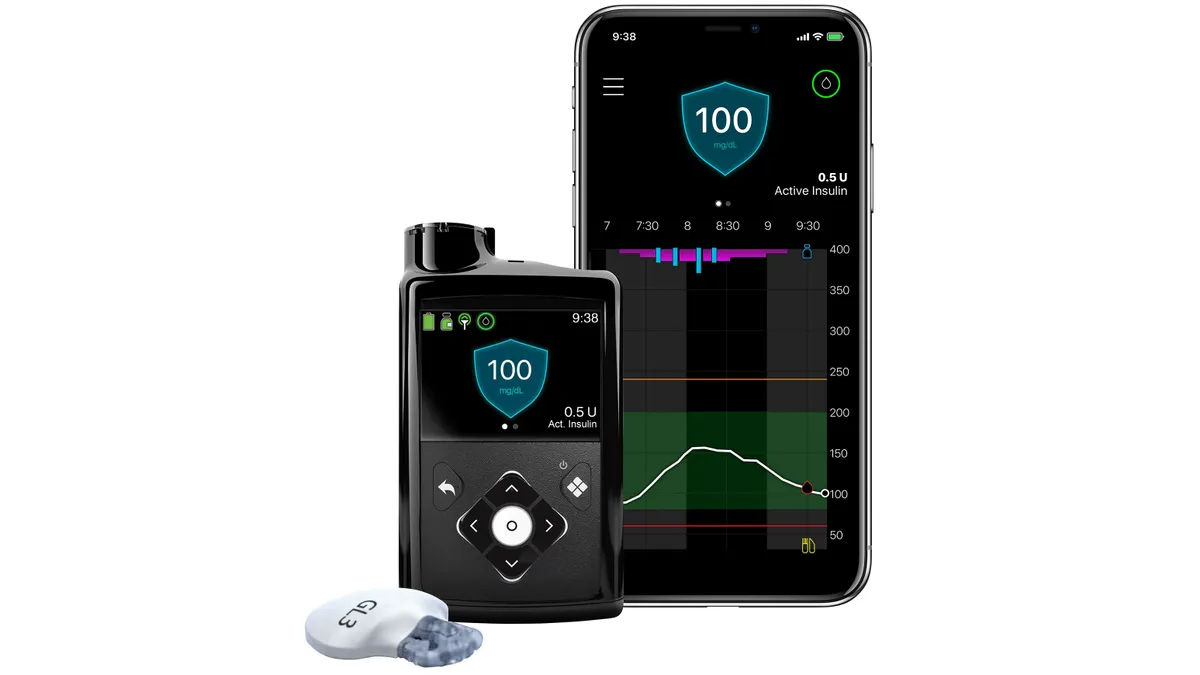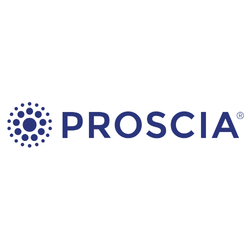At the American Diabetes Association’s Scientific Sessions, companies like Abbott, Dexcom and Beta Bionics will share the latest data on diabetes technology and new partnerships.
The annual conference takes place June 20-23 in Chicago, with industry leaders gathering to discuss new developments in diabetes treatments. This year’s event follows new ADA standards of care that would expand access to continuous glucose monitors, recommending that the devices be used in adults with Type 2 diabetes who are taking glucose-lowering medications other than insulin.
The conference also comes during a dynamic time in the diabetes tech industry, following Medtronic’s announcement to spin out its diabetes business, partnerships between competitors, plans for new CGMs and insulin pumps, and the Food and Drug Administration authorizing the first automated insulin delivery systems for people with Type 2 diabetes.
Here are five topics MedTech Dive will be watching during the conference:
1. Abbott, Dexcom to share updates on new CGMs
Abbott and Dexcom are expected to share updates on their latest CGMs at the conference. Abbott is developing a dual-analyte sensor that can detect both blood glucose and ketones, and has struck partnerships with insulin pump companies for integrations with the planned device. BTIG analyst Marie Thibault wrote in an email that the CGM “has the potential to be the first dual-analyte monitoring technology to come to market, pending approval.”
Meanwhile, Dexcom received FDA clearance in April for a 15-day version of its G7 CGM. The company has worked to line up integrations with automated insulin delivery systems, and plans to launch the new CGM in the second half of the year.
2. Updates on expanded coverage for CGMs
Access has expanded for both CGMs and insulin pumps in the past year, as the FDA has expanded device labels, insurers have extended coverage and the ADA has updated its guidelines.
Leerink Partners analyst David Risinger wrote in a research note last month that he expects the conference to be a “key catalyst” for CGMs, with more of a focus on people with Type 2 diabetes who don’t take insulin, as well as people with prediabetes and people who don’t have diabetes. Dexcom said it will present data at ADA this year that looks at the benefits of CGM use for people with Type 2 diabetes across various insulin therapies. The company said that in an observational study of people with Type 2 diabetes not taking insulin, use of Dexcom’s G7 CGM was associated with significantly reduced diabetes-related distress.
3. Automated insulin delivery for Type 2
Last year, the FDA granted expanded labels to Insulet and Tandem Diabetes Care for their automated insulin delivery systems to be used by people with Type 2 diabetes. Automated insulin delivery systems pair a CGM with an insulin pump, using an algorithm to predict how much insulin a person will need and automatically adjust the dose.
Medtronic is working on an expanded label for its 780G pump to be used with its Simplera Sync sensor by people with Type 2 diabetes. Medtronic will present late-breaking data on this effort during the conference, Risinger wrote.
Medtronic is also working on a separate automated insulin delivery system in partnership with Abbott, with Abbott developing a CGM to pair exclusively with Medtronic’s insulin pumps. Medtronic said in April that it made FDA submissions for its MiniMed 780G insulin pump and its SmartGuard insulin dosing algorithm that would allow them to be used as interoperable devices, a critical step in advancing the Abbott partnership.
4. Tandem, Medtronic, Beta Bionics plan new patch pumps
New competitors plan to bring patch pumps to the U.S. market, where Insulet is currently the only company with a patch form factor device.
Tandem Diabetes care has said it is working on a tubeless feature for its Mobi insulin pumps. The company is also developing a separate patch pump after buying AMF Medical in 2023.
Meanwhile, Medtronic told investors earlier this year that the company is still working on a patch pump.
It’s not clear if the companies will share news on the planned devices. However, Thibault said she would be listening for updates from Tandem, Medtronic and Beta Bionics, which plans to launch a patch pump version of its automated insulin delivery system in 2027.
Beta Bionics, which went public in January, said it will host a demonstration of the patch pump at a Sunday investor event.
5. Medtronic’s planned diabetes spinoff
Medtronic announced last month that it plans to spin out its diabetes business into a separate, publicly traded company. The unit brought in $2.76 billion of revenue in Medtronic’s 2025 fiscal year, and the medtech conglomerate hopes to separate it within 18 months.
So far, the company has shared few details about the planned spinoff, other than that the new company would be named MiniMed, reflecting the original name of the company before Medtronic acquired it in 2001. The business is based in Northridge, California, and has more than 8,000 employees.
Needham analyst Mike Matson wrote in a June 6 research note that the separation makes sense — allowing the diabetes company to become more nimble and responsive to customer needs and market trends — but will take time to create value.























